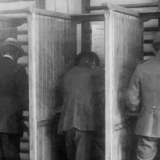

I recently spoke to the leader of the Service Employees International Union-United Service Workers West, which represents Los Angeles janitors, about some startling information I had heard earlier from a friend at SEIU-USWW.


Leo Hindery Jr. remembers the call he got the night before he was to testify before Congress, in September of 2007, to close a tax loophole enjoyed by private equity investors. It was from Stephen Schwarzman, co-founder of the Blackstone Group, the largest private equity management firm in the U.S.


The next step in deciding whether California will join other state efforts to demystify the drug pricing practices of pharmaceutical manufacturers will be taken tomorrow as the Assembly’s Health Committee votes on a drug pricing transparency bill introduced in February by State Senator Dr. Ed Hernandez.


House Speaker Paul Ryan recently released a new “anti-poverty” plan that would only make it tougher for poor and working families to get by.
For the state’s first hundred-plus years, certain unspoken rules governed California politics. In a state where agriculture produced more wealth than any industry, the first rule was that growers held enormous power.


One of the unfortunate byproducts of the matchup between Hillary Clinton and Donald Trump is that the presidential race has already become a contest of personalities rather than one of ideas.


Almost 120,000 misdemeanor crimes are reviewed for criminal filing by the Los Angeles City Attorney’s office each year. This high volume of cases, coupled with reductions in court resources, make it nearly impossible to consider each person’s situation individually.


Dan Berman is a Davis, California-based author, researcher and teacher with a wry sense of humor and deep wisdom regarding labor union and social justice activism for healthy workplaces.


The last time California enacted comprehensive tax reform, FDR was president, Babe Ruth was still playing baseball and the Golden State was five years away from seeing its first freeway open.


Most of us ignore the electoral process except when we’re voting. We stand in line and punch the card, carefully sweeping off the chads before we put it in the box. And leave the polls believing in the validity of our vote.